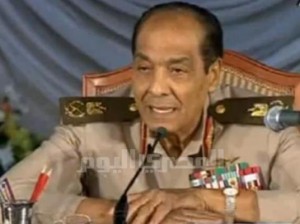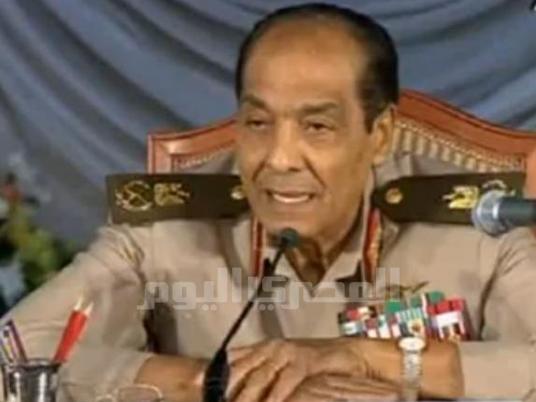
ahram.me
The undersigned organizations wish to whole-heartedly condemn the rising smear campaign against civil society associations, human rights organizations, and several independent political groups. We denounce the continuation of the organized smear campaigns designed to impugn these groups’ patriotism as well as ongoing attempts to intimidate civil society groups through investigations conducted by the State Security Prosecution into complaints accusing unnamed NGOs and political groups of receiving foreign funds and grants in violation of the law. The undersigned groups also condemn the authorities’ manipulation of the media to publicize investigations into associations and political groups accused of receiving US funding without identifying the groups in question, even as it is well known that the majority of US funds have been disbursed as grants to US institutions operating in Egypt in a public, official capacity.
These Egyptian organizations and groups, which remain unidentified, have even been accused of high treason—charges that the Mubarak regime did not dare to level at its political enemies or at those organizations that bravely confronted crimes and human rights abuses under his rule.
Regardless of the grievousness of the new allegations, the fact that those currently administering the country’s affairs after the January 25 revolution are using the same methods as the Mubarak regime to confront their critics reveals the irritation of the Supreme Council of the Armed Forces (SCAF) with the criticisms raised against it, whether directed at its management of the political course of the transitional period or at the grave human rights abuses for which it is responsible. These abuses include the widespread use of exceptional military trials—before which more people have been tried in the past six months than in the 30 years of Mubarak’s rule—and the use of the military judiciary to harass revolutionary youth who have criticized SCAF policies. In addition, torture continues to be carried out in detention facilities run by the military police and has even reached unprecedented levels, as female political activists face sexual assault by being subjected to forcible virginity tests. Excessive force has also been used on several occasions to disperse sit-ins by political groups and the families of martyrs of the January 25 Revolution.
Human rights crimes, not foreign funding
The heart of the dispute between human rights organizations and both the Mubarak regime and the SCAF is not foreign funding, but rather the critical stances taken by these groups when confronting human rights crimes, both before and after the January 25 Revolution. Foreign funding is not prohibited for the state and its institutions or for the official state councils on human rights, women, or children. Nor is foreign funding a sensitive issue for thousands of development associations and charitable groups who receive foreign grants, as the activities of these groups and institutions are not based on a critical evaluation of the performance of the state and its institutions in the sphere of human rights. As such, foreign funding has never been a cause for dispute between the state and these institutions, neither during Mubarak’s rule nor after him. Rather, the issue of foreign funding has been used as a tool to isolate and stifle human rights groups in an attempt to undermine their moral position within society or to arbitrarily ban certain activities by drying up funds for them, including anti-torture activities and election monitoring, as occurred during Mubarak’s rule.
This context helps explain why the military police, accompanied by State Security Investigations and hired thugs, raided the Hisham Mubarak Legal Center on February 3, 2011, just one day after the so-called “Battle of the Camel”, arrested several lawyers, including the founder of the group well-known attorney Ahmed Seif al-Islam, and detained them in a military camp, along with researchers with Human Rights Watch and Amnesty International who were meeting at the Hisham Mubarak Law Center. At the time, the center was the joint operations room for several Egyptian human rights groups who had formed the Front for the Defense of Egypt’s Demonstrators.
It is noteworthy that while the military police were arresting lawyers and researchers on the upper floor, thugs stood outside the door of the building, accusing them of being “traitors and agents.” Although this occurred while Mubarak was still president, these same accusations are now being used in a government smear campaign six months after Mubarak was deposed.
The SCAF’s hostile stance toward human rights groups before Mubarak’s ouster has not changed. This may also explain why Egyptian human rights organizations were the only group that was not invited for talks with the SCAF after Mubarak’s departure. When a member of the SCAF recently met with representatives from the group No to Military Trials, the journalist who reported on the meeting and the editor of her paper were summoned for questioning by the Military Prosecution.
Using the pretext of national security to restrict human rights groups and funding for their activities is not an invention of Mubarak or his successors; it is the standard operating procedure of all authoritarian regimes. Indeed, Israel has even used the pretext to impose legal restrictions on foreign funding—most of which comes from US or Jewish sources outside Israel—for Israeli human rights groups after they cooperated with international expert Richard Goldstone on the UN report he authored that recommended bringing Israel before the International Criminal Court because of crimes committed during its offensive on Gaza during Operation Cast Lead. These organizations, too, were accused of “treason.”
Toward a new policy
Based on the foregoing, the undersigned organizations demand that the competent authorities:
1. Immediately end the referral of civilians to military courts or any other exceptional investigative bodies, conduct civilian retrials for all those imprisoned based on sentences issued by these courts, and immediately release all prisoners of conscience and drop all charges against them.
2. Investigate all allegations of torture by the military police, including the sexual assault on women, and prosecute those responsible.
3. All competent authorities in the transitional period, including the SCAF and the Cabinet, should commit to respond immediately to complaints and reports submitted by human rights organizations and issue findings in public periodic reports.
4. Immediately end the government smear campaign against civil society associations and rights organizations. The undersigned organizations also urge all forces aspiring to a genuine democratic transition that responds to the aspirations and sacrifices of Egyptians to unequivocally stand up to this campaign, which is first and foremost aimed at undermining the gains made by Egyptians in the field of political, trade-union, and civic association in recent years, despite the arsenal of repressive laws used under Mubarak to enforce all manner of supervision and dominance over civil society and political parties. In this respect, the undersigned organizations wish to note the statement issued by the Egyptian Social Democratic Party and also to laud the exemplary conduct of Minister of Manpower Ahmed al-Borai, who consulted with human rights organizations and took their recommendations into consideration.
5. Dismiss Minister of International Cooperation Fayza Abu al-Naga and Minister of Social Solidarity Gouda Abd al-Khaleq in light of their hostile stance to civil society associations, their active role in restricting the activities of these associations, and their yielding to the dictates of the security apparatus.
6. Refer responsibility for relations with civil society groups to the Deputy Prime Minister, who is responsible for the democratic transition.
Finally, many rights organizations tested their mettle as they confronted the repression of Mubarak and Habib al-Adli through similar smear campaigns, which occasionally involved figures from the official opposition serving the ruling party and security apparatus at that time. These same organizations continue to cling to their right to independent association and to resource development that will enable them to perform their mission.
These organizations also continue to assert their right to invest the instruments of international cooperation to strengthen human rights in Egypt, including by entering into partnerships and receiving foreign grants that promote the objectives and activities of the rights movement, in accordance with priorities determined by these institutions themselves in light of their reading of the national political and social reality. The undersigned organizations insist that an objective evaluation of the performance of rights groups must be based on an evaluation of their activities and the extent to which society needs these activities.
We will continue to struggle in order to liberate all forms of civic association from any form of government supervision or authority. We will work to build alliances with democratic forces to adopt a democratic law in line with international standards that protects the freedom of association, removes the ability of the administrative body and the security apparatus to impose prior oversight on the establishment of NGOs and their activities, and secures foundations of honesty, transparency, and accountability through oversight by the general assemblies and boards of NGOs themselves. In all cases, only the judiciary should have jurisdiction over challenges to the performance of any civil society association.
The undersigned organizations have decided to put the attack on civil society at the top of their agenda, to form joint committees, and to conduct consultations with any relevant international bodies. We have also submitted an urgent complaint to the following:
- Office of the United Nations High Commissioner for Human Rights (OHCHR)
- UN Special Rapporteur on the Freedom to Peaceful Assembly and Association
- UN Special Rapporteur on Human Rights Defenders
- UN Special Rapporteur on Freedom of Expression
- Special Rapporteur on Human Rights Defenders with the African Commission on Human and Peoples’ Rights.
Signatories
- Cairo Institute for Human Rights Studies
- Alternative Development Association
- Andalus Center for Tolerance and Anti-Violence Studies
- Appropriate Communications Techniques for Development
- Arab Center for Development & Human Rights
- Arab Penal Reform Organization
- Arab Program for Human Rights Activists
- Arabic Network for Human Rights Information
- Association for Freedom of Thought and Expression
- Association of Researchers in Egyptian Universities and Institutes
- Awlad al-Ard Center for Human Rights
- Better Life Foundation
- Cairo Center for Development
- Center for Egyptian Women’s Legal Assistance
- Center for Trade Union and Workers’ Services
- Egyptian Association for Community Participation Enhancement
- Egyptian Association for Participation and Sustainable Development
- Egyptian Center for Economic and Social Rights
- Egyptian Democratic Academy
- Egyptian Foundation for Family Development
- Egyptian Foundation for the Advancement of Childhood Conditions
- Egyptian Initiative for Personal Rights
- Egyptian Organization for Human Rights
- Egyptians Against Religious Discrimination
- Hisham Mubarak Law Center
- Human Rights Legal Aid Group
- Ishraqa Center for Women’s Rights
- Land Center for Human Rights
- Nazra for Feminist Studies
- New Woman Foundation
- Shumuu Association for human rights and People for Disabilities
- South Center for Human Rights
- Supporters of Justice for Human Rights
- The Human Rights Association for the Assistance of the Prisoners
- United Group, Attorneys at law, Legal Researchers & Human rights advocates
- Women and Memory Forum
Share this Post

